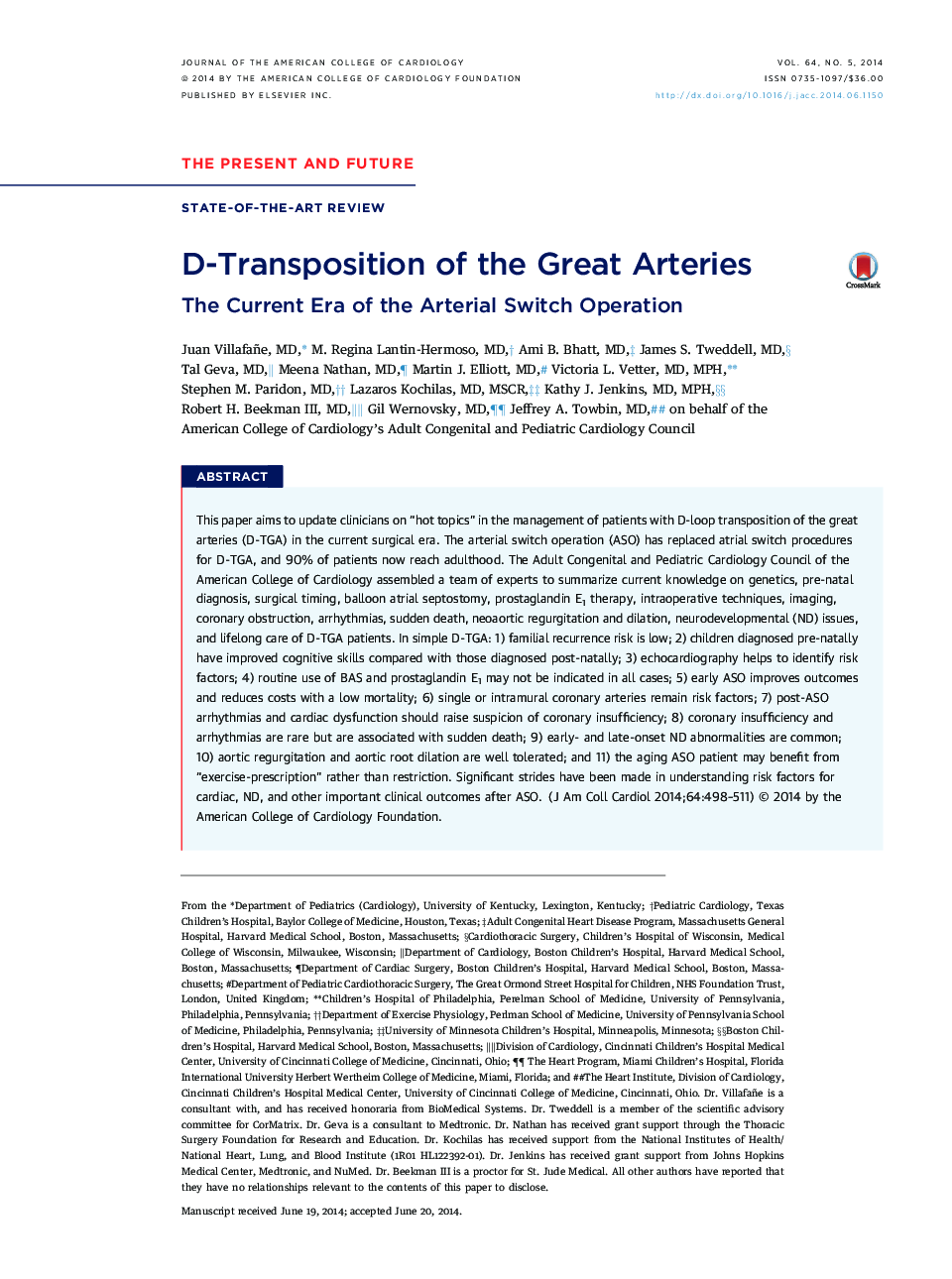| Article ID | Journal | Published Year | Pages | File Type |
|---|---|---|---|---|
| 2945017 | Journal of the American College of Cardiology | 2014 | 14 Pages |
This paper aims to update clinicians on “hot topics” in the management of patients with D-loop transposition of the great arteries (D-TGA) in the current surgical era. The arterial switch operation (ASO) has replaced atrial switch procedures for D-TGA, and 90% of patients now reach adulthood. The Adult Congenital and Pediatric Cardiology Council of the American College of Cardiology assembled a team of experts to summarize current knowledge on genetics, pre-natal diagnosis, surgical timing, balloon atrial septostomy, prostaglandin E1 therapy, intraoperative techniques, imaging, coronary obstruction, arrhythmias, sudden death, neoaortic regurgitation and dilation, neurodevelopmental (ND) issues, and lifelong care of D-TGA patients. In simple D-TGA: 1) familial recurrence risk is low; 2) children diagnosed pre-natally have improved cognitive skills compared with those diagnosed post-natally; 3) echocardiography helps to identify risk factors; 4) routine use of BAS and prostaglandin E1 may not be indicated in all cases; 5) early ASO improves outcomes and reduces costs with a low mortality; 6) single or intramural coronary arteries remain risk factors; 7) post-ASO arrhythmias and cardiac dysfunction should raise suspicion of coronary insufficiency; 8) coronary insufficiency and arrhythmias are rare but are associated with sudden death; 9) early- and late-onset ND abnormalities are common; 10) aortic regurgitation and aortic root dilation are well tolerated; and 11) the aging ASO patient may benefit from “exercise-prescription” rather than restriction. Significant strides have been made in understanding risk factors for cardiac, ND, and other important clinical outcomes after ASO.
